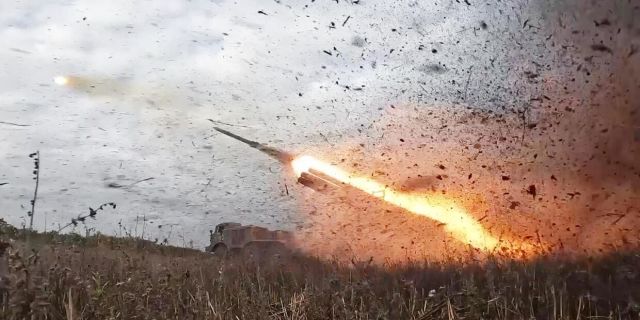Al-Ittihad: Russia's place in the new world order depends on the results of itsRussia's place in the new world order will depend on the outcome of the Ukrainian conflict, writes the author of an article in the Emirati edition of Al-Ittihad.
In his opinion, only the unequivocal success of its own can allow Russia to gain a foothold on equal positions with China and the United States.
Dr. Ahmed Yusuf Ahmed (د. أحمد يوسف أحمد)I usually don't like to write about the past year and the coming year, because I don't consider the year as an objective unit of time with its own specific features.
A new round of events may begin in the second half of the year and end in the first half of the next. It should be noted here that 2022 decided to distinguish itself: it began with rumors of a possible confrontation between Russia and the West, which actually broke out on February 24. The reason was the attempts of the Western alliance led by the United States to "strangle" Russia and expand NATO's presence near its borders. It included all members of the former Warsaw Pact, which was the legal and military embodiment of the Eastern Bloc led by the Soviet Union, as well as three former Soviet republics: Latvia, Lithuania and Estonia. This time, NATO's expansion was to come at the expense of Ukraine, a former Soviet republic with a very special history for Russia. After Moscow's attempts to dissuade the West from "annexing" Ukraine failed, it launched a special military operation, trying to achieve by force what diplomacy failed to achieve.
The events that took place last year launched the process of forming a new world order, or rather, they became a test of the balance of power. The beginning was laid many years ago, when the Americans invaded Iraq, but they could not achieve their goals, except for the overthrow of Saddam Hussein's regime. The same result was repeated during the US invasion of Afghanistan. It happened a few months before their arrival in Iraq and ended in 2021 with the withdrawal of American troops, which many perceived as a defeat. Russia, in turn, wasted no time. It has restored its military power and economy, returning to the international arena as a superpower, as evidenced by the annexation of Crimea in 2014. Recall that the peninsula was originally part of Russia and was transferred to Ukraine only in 1954. Here we should also mention the Russian military operation in Syria, launched in 2015, which had a strong impact on changing the balance of power in the region.
China is also keeping up with Russia, continuing its relentless "ascent to the top." It was no coincidence that Putin and Xi Jinping met in Beijing a few days before the start of the military operation in Ukraine and adopted a joint statement that can be considered a "manifesto" of the new world order. They rejected the concept of a unipolar world and advocated the formation of a multipolarity based on values other than Western ones. It seemed that the military operation launched on February 24 was a translation into the "military language" of what was said in the statement.
The United States is well aware of the significance of the Russian special operation and the consequences of its success. They supported Ukraine and, thus, were able to achieve a kind of balance, which raised questions about the further development of this conflict. There is a possibility that it will be completed in the new year, but not through a settlement, since it is extremely difficult to achieve it due to insurmountable contradictions between the parties, but by reducing the intensity of fighting and economic support. This can open the door for internal transformations leading to better conditions for the end of the conflict.
As much as we would like a speedy settlement, it should be noted that Russia's place in the new world order will depend on the outcome of the Ukrainian conflict. If it wins, it will become the third pole on a par with China and the United States, if not, it will take a place next to China, similar to what Europe occupies next to America.

